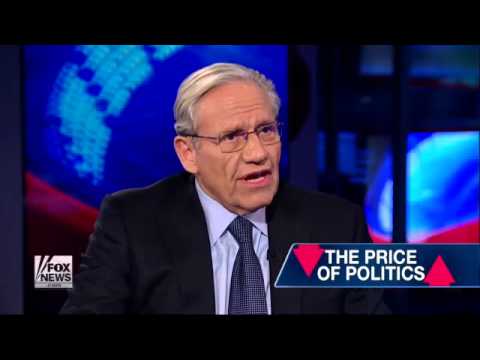Bob Woodward’s The Price of Politics is a devastating exposé of the lack of leadership in Washington–especially, though not exclusively, from President Barack Obama. While the nation faces profound fiscal challenges, the Obama administration plays politics and the Republican establishment struggles to find an agenda.
That much of Woodward’s book has been generally reported in the media–but there are other amazing revelations:
1. Democrats were the first to hold the country “hostage” on the debt ceiling. Sen. Kent Conrad (D-ND), Woodward reveals, issued a “clear threat” to Obama on Nov. 24, 2009, that he would block any increase in the debt ceiling unless a commission were created to deal with the country’s fiscal problems. Democrats and the media would later call the Tea Party “hostage-takers,” but the first ultimatum actually came from the left.
2. Unlike Congress, Obama had no “Plan B” in case negotiations failed. This revelation has received some media attention, in fact, but not nearly as much as it deserves. Obama had no fallback option except the political case–i.e. let the country default, and blame the GOP. That’s not just bad policy–it’s bad negotiation strategy, because it meant Obama’s alternative to talks was not credible, weakening his position.
3. Both Obama, and Republican House Speaker John Boehner, misled the public. Perhaps it’s no great surprise that politicians lie, especially when they need to protect confidential offers made in negotiations, but the amount of dissembling seems extreme. Boehner claimed he received no proposals from the White House, when he had; Obama lied about not playing politics, when his political motives were paramount.
4. Senate Majority Leader Harry Reid was one of the good guys. It seems hard to believe, and perhaps reflects who Woodward relied on as his sources, but Harry Reid emerges from The Price of Politics as a leader committed to finding a deal, prepared to stand up for Congress’s prerogatives, and genuinely respected by his opponents as a trustworthy negotiator as opposed to the evasive and campaign-oriented president.
5. White House budget director (now Chief of Staff) Jack Lew was one of the bad guys. The soft-spoken, affable Lew keeps a low profile nowadays, but during the debt ceiling negotiations he so antagonized Republicans that they asked the White House to exclude him. Lew irritated GOP leaders by arguing Obama’s ideas were actually better for them, politically–condescension they would tolerate from Obama, but not his staff.
Woodward gets a few things wrong, and leaves a few things out. For example, he never brings up the fact that Obama himself had voted against raising the debt ceiling while in the Senate. He accepts the mainstream media assumption that the Tea Party freshmen in the House of Representatives were “extremists” who were prepared to let the country default (many questioned the Aug. 2 deadline but very few actually suggested default.)
One question Woodward also leaves unanswered is whether the debt ceiling fight had been the administration’s fault to begin with. The debt ceiling was barely an issue in the 2010 elections, and only became one when Treasury Secretary Tim Geithner wrote a letter to Boehner in 2011 asking for assurances that it would be raised.
It is quite possible Obama bungled his way into the crisis as well as bungling his way through it.
Image credit: World News, Inc. and Fox News Channel

COMMENTS
Please let us know if you're having issues with commenting.